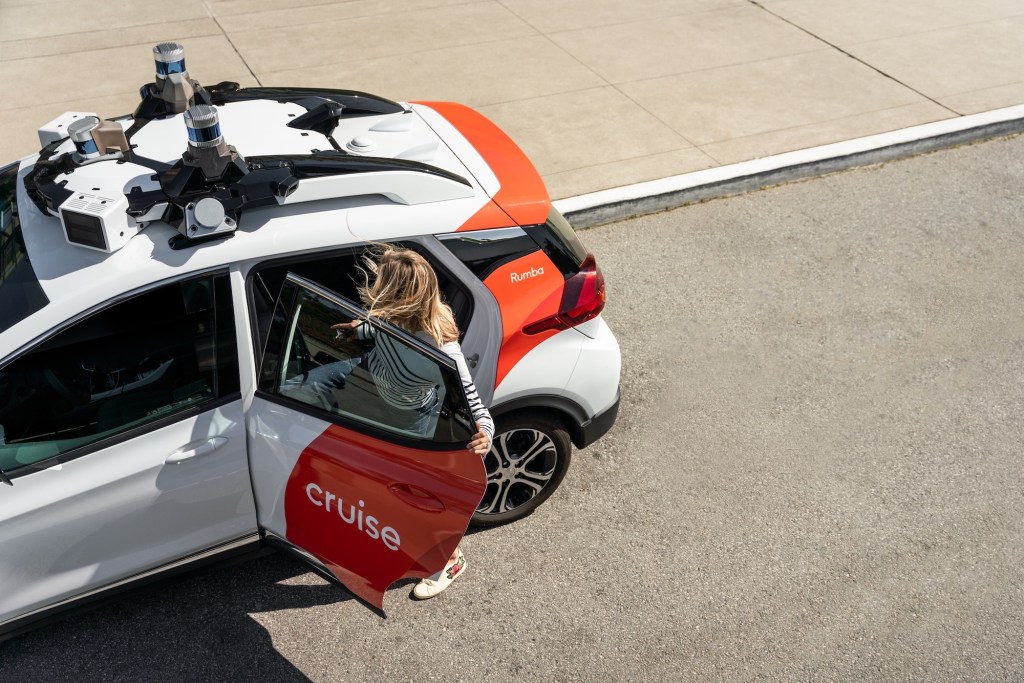Self-driving vehicle companies Waymo and Cruise are on the cusp of securing final approval to charge fares for fully autonomous robotaxi rides throughout the city of San Francisco at all hours of the day or night.
Amid the city’s mounting resistance to the presence of AVs, the California Public Utilities Commission (CPUC) published two draft resolutions late last week that would grant Cruise and Waymo the ability to extend the hours of operation and service areas of their now-limited robotaxi services.
The drafts are dated for a hearing June 29, and there’s still room for public comments, which are due May 31. Based on the CPUC’s drafted language, many of the protests raised by the city of San Francisco have already been rejected.
City agencies have called out the string of (mainly) Cruise vehicles that have malfunctioned and stopped in the middle of intersections or even on light rail lines, impacting the flow of traffic and obstructing both public transit and emergency responders. The series of incidents, documented on social media and online forums, has led to an investigation into Cruise by the National Highway Traffic Safety Association.
Armed with these examples, the city has urged the CPUC to move cautiously, set up workshops, collect more data, prohibit robotaxi deployment downtown and during peak hours, and limit the expansion of fleet sizes.
Autonomous Cruise car encounter with police raises policy questions
Robotaxis have already caused issues in the city from both a traffic flow and safety perspective, something that will only be exacerbated once an uncapped number of AVs flood the city, the city argues. Neither Cruise nor Waymo would share exactly how many AVs they currently have in San Francisco. A Waymo spokesperson said the company has “a couple hundred cars” in each of its fully autonomous branded “Waymo One” service areas.
“San Francisco expresses concerns about expansion of commercial service into peak hours of the day as stoppages and delays are likely to impact significantly more passengers both on the impacted transit line(s) and systemwide,” reads the CPUC’s summation of objections raised by the San Francisco Municipal Transportation Authority (SFMTA), the SF County Transportation Authority (SFCTA) and the Mayor’s Office of Disability.
“Further, San Francisco describes unplanned stops and unsafe maneuvers by Cruise AVs that have impacted emergency responders. These include incidents where a Cruise AV obstructed a fire department vehicle traveling to an emergency, ran over a fire hose, or improperly entered an emergency scene.”
The CPUC has countered that San Francisco’s arguments are not “within the grounds for a proper protest” because it would “require relitigating a prior order of the Commission” and because a protest can’t rely “purely on policy objections.” The Commission has also noted that the California Department of Motor Vehicles, not the CPUC, has authority over Cruise and Waymo’s approved operational design domains — which include service areas and hours of operations.
While city agencies have clearly expressed their objections to the CPUC’s approval, Cruise and Waymo were able to secure supportive responses from 38 stakeholders each (mostly the same stakeholders) spanning elected officials, local groups, accessibility advocates, technology industry groups and business and economic development organizations. Some supporters include: The American Council of the Blind, Autonomous Vehicles Industry Association, Consumer Technology Association, Richmond Neighborhood Center, San Francisco Chamber of Commerce and Silicon Valley Leadership Group.
In San Francisco, Cruise and Waymo have had to secure a series of permits from city agencies in order to put robotaxis on the road. The DMV approves requests to test and deploy autonomous vehicles, and the CPUC grants permission to charge passengers for fares.
Cruise’s current permits allow it to offer a fared passenger service in limited areas of San Francisco from 10 p.m. to 6 a.m., as well as a free passenger service throughout the city at any time of the day — both without a safety driver present. As of late April, Cruise has only opened up the fully autonomous city-wide service to employees.
Waymo’s paid service, which is available throughout San Francisco at any time of day, must have a human safety driver present. The company’s fully autonomous (meaning with no safety driver) robotaxi service that operates throughout the city is still free. Waymo also offers a free service with a safety driver present in parts of Los Angeles and in and around Mountain View.
If and when the CPUC authorizes the two competitors to start charging passengers for driverless rides, Waymo and Cruise will be on equal footing in the city. At least from a regulatory perspective.
Receiving authorization doesn’t mean Waymo and Cruise will immediately start operating full-scale commercial operations in San Francisco.
A spokesperson for Waymo said the company intends to “expand thoughtfully and with safety as our highest priority.”
Cruise did not provide a comment on how it plans to expand throughout San Francisco.
Update: This article has been updated with a comment from Cruise and information about stakeholders who support the CPUC granting permits to Cruise and Waymo.






























Comment